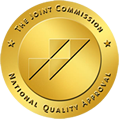What’s the Difference Between a Hangover & Alcohol Poisoning?
Understanding the Dangers of Binge Drinking
Alcohol poisoning can happen when someone consumes a large amount of alcohol over a short period of time. The college campus has been the scene of many tragic deaths that occurred due to binge drinking. While we may first think of young adults when we hear about binge drinking, they are not the only ones doing the dangerous drinking. Anyone at any age who drinks a large amount in a short time can potentially be poisoned by alcohol.
It is important to recognize alcohol poisoning next day effects, and long-term effects. Alcohol has the potential to do great damage to your life. Alcohol abuse leads to substantial health problems, mental health issues, and more. To avoid the dangers of excess alcohol intake it helps to have a healthy respect for the risks of drinking. Learn about hangover vs. alcohol poisoning.
About Alcohol Poisoning
The human body is only able to manage a certain amount of alcohol. The liver can process about one ounce of liquor per hour. Drinking more than that amount will result in toxic levels of alcohol building up in the blood. When too much alcohol overwhelms the liver, bloodstream, and body tissues it will lead to poisoning.
The guidelines published by the NIAAA help us to know what safe drinking looks like. They state that women should drink no more than three drinks in a given day or seven drinks per week. Men should not exceed 4 drinks in a given day or 14 drinks per week. Blood alcohol concentration can reach the legal limit of .08 g/dl quickly. For a woman it means drinking 4 drinks in a two-hour period. For a man, 5 drinks in that same time span.
How To Know If You Have Alcohol Poisoning, The Next Day?
When toxic alcohol levels occur it means the body is not able to metabolize it. This can result in very serious health risks. The person will express these signs and symptoms of alcohol poisoning next day:
- Low body temperature
- Irregular breathing
- Pale, clammy skin
- Unresponsiveness
- Mental confusion
- Vomiting
- Seizure
- Incoherent
- Coma
What Happens With Alcohol Poisoning?
In the event of alcohol poisoning, mild alcohol poisoning, you must call for help right away. While waiting for help to arrive, keep the person in an upright position and keep them awake. Do not leave them alone. Once at the hospital, he or she will be treated based on how severe the event is. They will likely need I.V. fluids and glucose. They may require a breathing tube until normal breathing is restored. In some cases, the stomach may need to be pumped to quickly remove the alcohol contents from their system.
Death can occur when the person vomits and cannot expel it, leading to choking on the vomit. Some of the after effects might include brain damage, hypothermia, or low blood sugar. Alcohol poisoning can impact the liver, pancreas, and stomach, causing inflammation. Alcohol poisoning symptoms next day may involve a severe hangover as the body attempts to become more stable.
Getting Help for an Alcohol Use Disorder
It is never a good idea to ignore an alcohol problem. Alcohol abuse can lead to alcoholism, a chronic, progressive, relapsing brain disease. If the problem is ignored the problem will only get worse with time. To delay getting treatment is asking for a much bigger problem later.
It is still not fully known what causes someone to become an alcoholic. Science has not yet learned why one heavy drinker becomes an addict and another who drinks the same does not. Our genes, family history, personality traits, biology, and life events can all play a part in an alcohol use disorder. When someone has gone through alcohol poisoning they will get some help. For the best outcomes someone should seek help as soon as the unhealthy drinking patterns become evident.
Medically Supervised Detox
Before going to rehab for treatment you must first complete the detox process. Alcohol detox can turn serious without warning. Trained detox specialists are able to quickly respond if symptoms become erratic. In most cases, the alcohol detox will take about a week to complete.
During detox, the brain and central nervous system will respond to the absence of alcohol by becoming destabilized. Withdrawals emerge as the body attempts to become stable. Symptoms will vary from mild to severe based on a few factors. These include how long the heavy drinking has been going on and the health and age of the person. Also, the detox can be impacted if the person has a coexisting mental health problem.
Alcohol withdrawal symptoms may include:
- Sweating.
- Shakiness.
- Hand tremors.
- Chills.
- Nausea and vomiting.
- Anxiety.
- Irritability.
- Loss of appetite.
- Insomnia.
- Seizure.
- Hallucinations.
To help manage the symptoms, the detox team will provide benzos and other medications.
Comprehensive Treatment for Alcohol Use Disorder
To treat an alcohol use disorder there are two types of rehabs to choose from, outpatient and residential. The outpatient option is less intensive but costs less and is and more flexible. But outpatient rehab is only best for mild to moderate alcohol use disorders. The residential rehab option provides a long stay at a treatment center. During the day there will be a wide array of therapies and activities. These include therapy sessions, group therapy, addiction classes, and the 12-step program.
Ken Seeley Communities Provides Early Intervention Services and Rehab for Alcoholism in Palm Springs, CA
Ken Seeley Communities is here to help people that find themselves abusing alcohol. If you or a loved one is engaging in binge drinking, consider contacting Ken Seeley Communities. Ken Seeley Communities provides all aspects of alcohol addiction treatment, covering the spectrum of services like detox, rehab, and aftercare. For questions about our intervention services and recovery programs, please contact Ken Seeley Communities today at (877) 744-0502.




